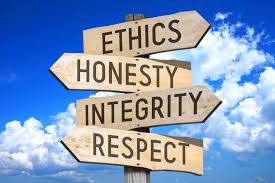The Future of Compliance: Building Bridges (Part II of III)

As a passionate supporter of the compliance function, I continue to advocate for compliance officers and the importance of compliance to overall governance. Good compliance means good business – we all know that.
Compliance always depends on interpersonal skills. A CCO is only as good as his/her ability to persuade and enlist commitments from senior management and related functions. Often I hear about problems CCOs face in securing cooperation from related functions, such as CFOs, HR representatives and procurement officials. This is an unworkable situation.
Effective compliance requires operationalizing cooperation across functions. Finance, internal audit, human resources, procurement and security have to work together or a compliance program will fail. Breaking down silos is a critical requirement for operationalizing a program.
I am always amazed at steps corporate managers will take to protect their territories. In the end, a company depends on cooperation but personalities, insecurities and self-preservation can undermine an ethics and compliance program. Everyone should cooperate but often senior managers view their primary objective as “protecting” their job and responsibilities.

A compliance officer has to convince senior managers of the benefits to other functions that compliance can bring a value add to their cooperation. A generalized message of overall benefits to a company from compliance may not be enough to persuade a senior manager to cooperate, share information, and bring about greater results.
When you take a step back, compliance officers who have the ability to persuade, find incentives for cooperation, and leverage whatever resources and authority they have, can bring the business, human resources, information technology, security, internal audit and others to the table to cooperate. Compliance rules and procedures are a fundamental requirement for business compliance. When compliance officers work with related functions, especially business interests, to facilitate compliance and advance business interests while ensuring compliance, it is a classic win-win for a company. This is the engine of performance, productivity and compliance with business rules and procedures.
Compliance officers who wrap themselves in rules and procedures and demand compliance by related functions and the business are undermining their own performance. When a compliance officer works closely with related functions, shares information, advances common objectives and builds strong collaborative relationship0s, everyone wins.

Given these realities, when building a compliance department, a greater emphasis has to be placed on interpersonal skills. A compliance officer has to be intuitive, capable of reading people, understanding and listening to people, and addressing incentives and motivations. Political acuity is critical for compliance professionals.
Some may dismiss my perspective as another profound grasp of the obvious. We always look for professionals with interpersonal skills but we fail to place enough importance on this personality trait. Compliance officers have a distinct need for interpersonal skills, perhaps more than other corporate professionals. The success of a compliance officer depends on this skill – the ability to interact and persuade others to join in a common mission.
















Mr. Volkov,
I really enjoy your enthusiasm for “positivity.” Your posts may portray a bit of naivety, but your branding tells a different story. Rather than focus on “Corruption and Crime,” you emphasize compliance and ethics which should make more sense for your target audience. Whether that audience includes a corporate or compliance executive, your message should sink in when they consider the alternative.
Michael,
You hit the nail on the head. We tend to think the obvious is not critical and miss the mark searching for the spectacular.